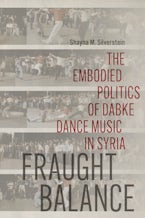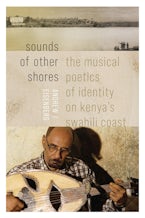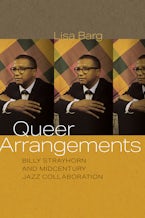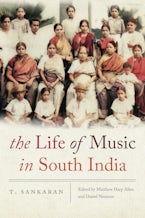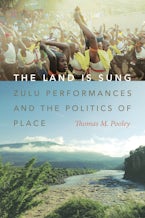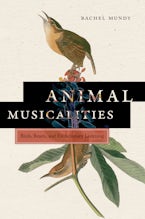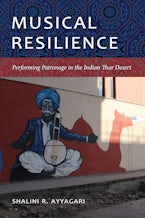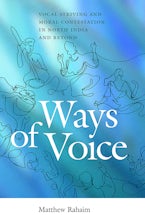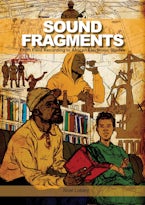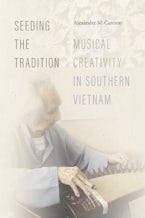- Home
- Music / Culture
- music
- social science
- Wild Music
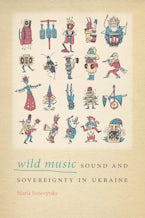
Musical representations of wildness in an era of revolution
Recipient of the 2020 Lewis Lockwood Award from the American Musicological Society
What are the uses of musical exoticism? In Wild Music, Maria Sonevytsky tracks vernacular Ukrainian discourses of "wildness" as they manifested in popular music during a volatile decade of Ukrainian political history bracketed by two revolutions. From the Eurovision Song Contest to reality TV, from Indigenous radio to the revolution stage, Sonevytsky assesses how these practices exhibit and re-imagine Ukrainian tradition and culture. As the rise of global populism forces us to confront the category of state sovereignty anew, Sonevytsky proposes innovative paradigms for thinking through the creative practices that constitute sovereignty, citizenship, and nationalism.
Acknowledgments • Note on Names and Transliteration • Introduction / Sound and Sovereignty • One / On Wildness: Ethnic Intimacy, Auto-Exoticism, Infrastructural Activism • Two / Radio Meydan: The Liminal Sovereign Imaginaries of Crimea • Three / Ungovernable Timbres: The Failures of the Rural Voice on Reality TV • Four / Freak Cabaret: Politics and Aesthetics in the Time of Revolution • Five / Ethno-Chaos: Provincializing Russia through Ukrainian World Music • Conclusion / Dreamland: Towards a Theory of Acoustic Citizenship • Notes • Bibliography • Index
MARIA SONEVYTSKY is an assistant professor of music at the University of California, Berkeley. She has performed widely, with several bands including The Debutante Hour, Anti-Social Music, and Zozulka, and produced an album called "The Chornobyl Songs Project" on Smithsonian Folkways in 2015 with Ensemble Hilka. She has also taught Ukrainian village songs, accordion, and more.
"Sonevytsky's vivid prose brings together rich ethnography with sophisticated analysis. Through her concept of wildness, she shows how performers disrupt binaries of tradition and modernity, of 'Eastern' and 'Western' culture, as they construct their country's sovereignty. A powerful book!"
~Laada Bilaniuk, author of Contested Tongues: Language Politics and Cultural Correction in Ukraine
"Beautifully written, this vital and sensitive ethnography documents the social, affective, and discursive energies that flow within contemporary Ukrainian music. Sonevytsky highlights the possibilities for imaginative agency that 'wild musics' provide, without ignoring the very real constraints that hem in the Ukrainian subjects whose complex personhood is the real focus of this remarkable book."
~J. Martin Daughtry, author of Listening to War: Sound, Music, Trauma, and Survival in Wartime Iraq
"Post-Soviet Ukraine emerges in this beautiful and original book as a place of a vibrant musical and sonic culture. Marked by experiment, hybridity, and 'wildness,' this scene not only produces remarkably creative musical projects, but also makes new forms of political sovereignty, citizenship and community imaginable. A great achievement."
~Alexei Yurchak, author of Everything Was Forever, Until It Was No More: The Last Soviet Generation
"Maria Sonevytsky's book Wild Music: Sound and Sovereignty in Ukraine is a distinguished achievement of contemporary ethnomusicological scholarship. It deals ethnographically with various Ukrainian "ethno-music" (etno-muzyka) phenomena that can be considered borderline, not only in their geographic and cultural designation (Hutsul and Crimean Tatar), but also in their conceptual and political characterization."
~David Verbuč, Charles University, Urban People Journal
"Sonevytsky's Wild Music is the product of the scholar's ten years of fieldwork in Ukraine. One of her study's strengths is the polyphony of voices she includes—from professional musicians to community activists, fellow ethnographers and people on the ground. In one of the book's characteristically immersive passages, Sonevytsky, for instance, transports her readers into a packed intercity microbus (marshrutka) in Crimea where two local fishermen react to a Crimean-Tatar radio station blaring from the loudspeakers. However, beyond the richness of its ethnographic material, the book offers a meticulous theoretical exploration of the notions of sovereignty and citizenship, as well as their explication as lived experiences of Ukraine's multiethnic population."
~I. Shuvalova, Slavic and East European Journal


